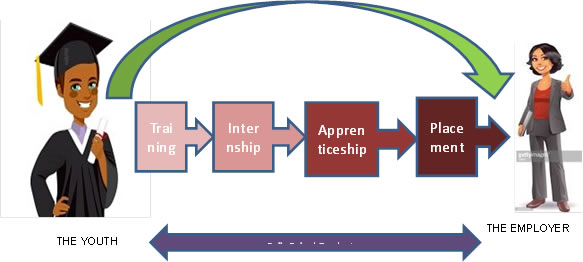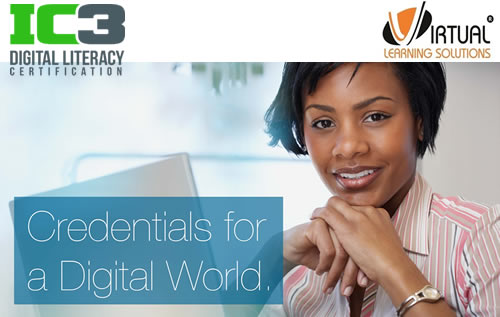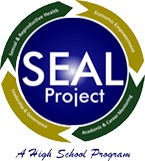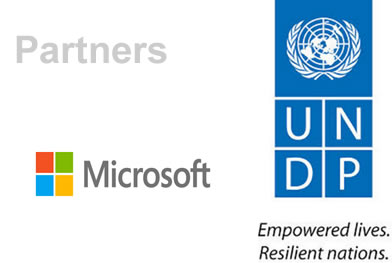
I Choose Life – Africa implements education interventions across counties in Kenya with the sole aim of promoting equitable access, attendance, retention, attainment and achievement in education through quality education. The organizations seeks to contribute towards the overall goal of fostering efficient, transformative and accountable management for enhanced quality and life- long education for improved quality life.
Focus Areas:
I Choose Life – Africa’s Education Programmes focuses on:
The Girl Effect, the clock is ticking.
 With the overarching goal of enhanced Quality Basic Education for Kenya’s Sustainable Development, I Choose Life – Africa has aligned her education interventions to the National Education Sector Plan (NESP). ICL implements education interventions across counties in Kenya with the objectivel of enhancing the quality of education for sustainable national development. Through its education interventions ICL proposes strategies to address education wastage, inefficiency, accountability, relevancy for quality enhancement.
With the overarching goal of enhanced Quality Basic Education for Kenya’s Sustainable Development, I Choose Life – Africa has aligned her education interventions to the National Education Sector Plan (NESP). ICL implements education interventions across counties in Kenya with the objectivel of enhancing the quality of education for sustainable national development. Through its education interventions ICL proposes strategies to address education wastage, inefficiency, accountability, relevancy for quality enhancement.

Introduction
Mentorship is a critical aspect that boosts students’ intrinsic motivation. Students who are constantly mentored are highly motivated to learn since they are exposed to extra curricula opportunities that make them appreciate life skills such as self-awareness, self-esteem and the need to achieve self-actualization.
About Mentorship
Mentorship is a one-to-one relationship between a student and an adult that occurs over a prolonged period of time. The Mentor provides consistent support, guidance, and concrete help to the girls who is in need of a positive role model. Girls involved in the Mentoring program may be going through a difficult and challenging situation, a period of life in which they need extra support.
USP
Academic and Career Mentorship
Benefits
Our Clients
Our Customers
 Introduction
Introduction
Management of students’ information in schools using the current manual system has posed a great challenge due to lack of real time information to enhance decision making. Direct reporting to higher level upto the Ministry of Education Science presents information loss and thus automation of processes is a critical factor in order to meet the 21st century education goals.
About BioSIM Managing School’s students’ enrollment, classroom attendance and learning can be a rigorous process with the current manual system presently employed at various schools are unable to meet these challenges.
ICL has developed a Biometric Student Information Management system (BioSIM), a web based School Information Management System that has automated students’ and school information management in Kenyan schools.
Features
The system uses the iris as a unique identifier and comprises of:
USP
Academic and Career Mentorship
Benefits
Our Clients


Introduction
The search for jobs & opportunities by graduates on one hand and skills & competencies by employers that match their needs on the other hand is an everyday dilemma that Chuo2Kazi seeks to address. Focus Area
The goal is to bridge the gap between students and the labour market by connecting them to opportunities through:
About Chuo2Kazi
Chuo2Kazi is a platform that is acting as the medium between students, schools & institutions of higher learning and job opportunities by offering internship and mentoring opportunities for students to effectively transition from schools to work by acquiring and developing transferable skills and work culture in the labour market.
A) CV WRITING & SCREENING
The product is aimed at equipping the participants in the chuo2kazi get resumes which is marketable. The key markets are the chuo2kazi participants in the various colleges. The procedure for the CV screen involve:
B) CAREER BOOT CAMP
Career boot camp is a one day workshop aimed at assisting students in developing employability skills in the different areas. The program targets finalist in colleges and fresh graduates who are yet to start work. Our career boot camps are organized in liaison with universities and colleges placement/ career offices in the different institutions and organizations. The career boot camp curriculum entails:
C) INTERNSHIPS
Internship program aims at improving transition and completion rates of young people in school. Students get hands on exposure to a working environment under rotate under different department going through a structured program to ensure that they acquire optimal skills and knowledge in that department for the assigned duration.
The target group consists of fresh graduates and college graduates seeking internships for academic purposes attached for 3 months. Throughout the internship, the interns receive mentorships from the attached supervisor. Upon completion interns are given letters of recommendation and revamped CV to assist them in Job placements.
Interns are attached to the following fields and departments
D) E-LEARNING
E-learning aims at equipping participant for professional development in wide range of field. ICL partners with global universities to offer a 3 month training and certification. The product targets students as well as professionals.
Course includes but not limited
Features
Programs under our employability program (Chuo2kazi) include:
USP
Benefits
Chuo2Kazi serves to
Our Clients

Introduction
The Internet and Computing Core Certification (IC3) is the world’s first validated, standards-based training and certification program for basic computing and Internet knowledge and skills.
Focus Areas: Digital Literacy
About
IC3 validates basic knowledge and ability to use computer hardware, software, and the Internet productively. It is the ideal certification for anyone that wants to demonstrate critical computer and Internet skills valued in today’s academic and professional environments. Because digital literacy is vital to the success in both of these endeavors, Internet and Computing Core Certification (IC3) is the perfect credential for both traditional and non-traditional students as well as employees.
The IC3 Digital Literacy Certification is a global standard that provides candidates with the foundational knowledge they need to succeed in every environment that requires the use of computers and the Internet. Individuals who are certified in IC3 are qualified to meet the technical requirements that are needed for an entry level employee or first-year college student.
Features
Addresses several new concepts common to digital literacy, such as:
USP
Benefits
PROJECT PARTNERS
Click here to download the registration form.

Introduction
The Microsoft Certified Educator (MCE) is a competency-based professional development and certification offering.
Focus Areas:
About
Technology-neutral, the MCE assessment enables educators to demonstrate competency as outlined in the United Nations Educational, Scientific, and Cultural Organization Information and Communications Technology, Competency Framework for Teachers (UNESCO ICT-CFT), Technology Literacy Approach. It also offers an opportunity for educators to differentiate themselves in the education field, and enhance their value for current and future employers. USP
Key Competencies for Teachers will include:
Features
MCE learning and validation steps aligns to six key aspects of ICT and pedagogy integration:
Benefits
Our Partners
Click here to download the registration form.
Jielimishe GEC project is one of the existing education projects in the country whose major focus is to improve enrolment, attendance, retention and learning through its targeted integrated intervention. The project is funded by the UK government (UKAID) through Department for International Development (DfID) and is being implemented by I Choose Life Africa and her partners; Kenya Red Cross Society and SoS Children’s Villages Kenya. The project seeks to improve life chances of marginalized girls in Kenya through education, through an integrated intervention and multi-level approach.
The project seeks to address 5 key challenges affecting marginalized girls’ attendance to school and learning. These challenges are: Cultural barriers, quality of teaching, leadership and management of schools, inadequate infrastructure, and inconsistent implementation of MoEST pro girl education policy and lack of adequate motivation for girls to attend, stay in school and learn. The consortium envisions that, with the girl child at the core, as a result of addressing the school environment (the quality of teaching, infrastructure and teacher attitudes); the girls’ community (parents/primary care givers, community gate keepers/resource persons) as well as government policies and their implementation the marginalized girls shall enroll, attend, stay in school and learn ultimately resulting increasing their life chances.
I Choose life-Africa and her strategic partners seek to achieve the following objectives:
Prior to implementation of the project, a baseline study was conducted to help find out the prevailing county specific issues affecting access, attendance, progression and quality of learning. The findings therefore helped design a project engrained on relevance to address the real issues. Project implementation commenced in March 2014 with continued technical and monitoring support from PWC and FHI. Ongoing involvement of Ministry of Education Science and Technology (MoEST) both at the national and the county level has been the projects strength and the guidance given from these relevant offices has gone a long way in implementation of effective and efficient interventions that are now affecting enrolment, attendance, transition and learning.
Project Goal
To Improve Life Chances of Marginalized girls
Project Outcomes
Project Outputs
Project Implementation Areas
Interventions at the community
The major activities under this component include:
Interventions at the school
The major activities under this component include:
Interventions targeting the girl
The major activities under this component include:
Beneficiaries
The Primary beneficiaries of this project are 10,170 girls (both in school and out of school) from the 3 counties. The secondary beneficiaries are teachers, parents, boys in schools and Ministry of Education Science and Technology.
THE COMMUNITY
THE SCHOOL
THE GIRL
Partners in GEC

 The SEAL (Sexual reproductive health, Economic empowerment, Academic and career mentoring, Leadership and governance) project was initiated by I Choose Life- Africa (ICL) in partnership with Economic Projects Trust Fund (EPTF) in 2009 in Nairobi County and later expanded to two other counties i.e. Machakos and Uasin Gishu counties.
The SEAL (Sexual reproductive health, Economic empowerment, Academic and career mentoring, Leadership and governance) project was initiated by I Choose Life- Africa (ICL) in partnership with Economic Projects Trust Fund (EPTF) in 2009 in Nairobi County and later expanded to two other counties i.e. Machakos and Uasin Gishu counties.
The project seeks to holistically address the reproductive health needs of young people and to build on the knowledge acquired through research findings and lessons learnt in project implementation. This aims to test the holistic approach model that addresses sexual reproductive health and poverty as a determinant of health amongst students in secondary schools and their surrounding communities in a rural setting.
Project Goal
Improving reproductive health outcomes for young people in secondary schools through a holistic approach that addresses social determinants of health
Objectives
Outcomes
Project implementation areas
Key Project outputs
Project Partners
I Choose Life – Africa (ICL) recognizes that workforce development and networking amongst the stakeholders provides enormous employment opportunities for the youth in universities/colleges and out of school which holds the key to unlocking the growing youth unemployment challenges in the country. ICL with financial and technical support from Microsoft and UNDP is implementing the employers challenge initiative in Laikipia and Taita Taveta Counties.
Project Goal
The overall goal of this project is to mobilize Kenyan based employers to commit their companies to provide opportunities for youth, and to raise youth’s awareness of the opportunities and resources available online.
Project Objectives

